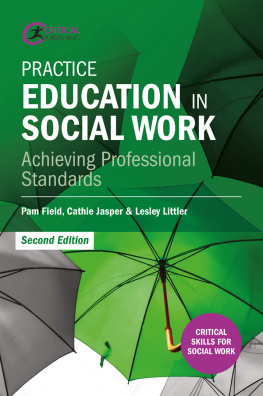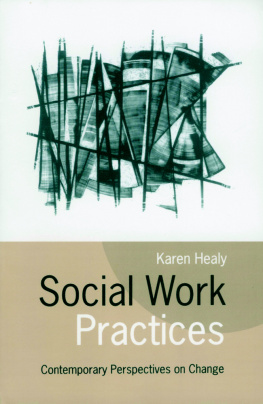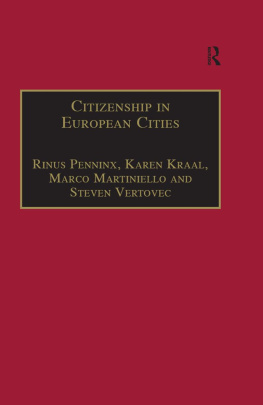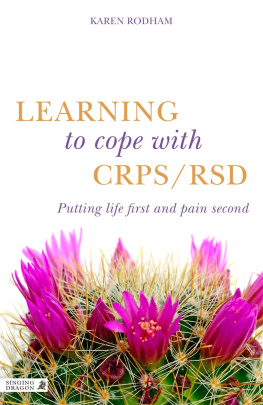SHAPING FUTURES
Shaping Futures
Learning for Competence and Citizenship
KAREN M. EVANS
First published 1998 by Ashgate Publishing
Reissued 2018 by Routledge
2 Park Square, Milton Park, Abingdon, Oxon, 0X14 4RN
711 Third Avenue, New York, NY 10017, USA
Routledge is an imprint of the Taylor & Francis Group, an informa business
Copyright Karen M. Evans 1998
All rights reserved. No part of this book may be reprinted or reproduced or utilised in any form or by any electronic, mechanical, or other means, now known or hereafter invented, including photocopying and recording, or in any information storage or retrieval system, without permission in writing from the publishers.
Notice:
Product or corporate names may be trademarks or registered trademarks, and are used only for identification and explanation without intent to infringe.
Publishers Note
The publisher has gone to great lengths to ensure the quality of this reprint but points out that some imperfections in the original copies may be apparent.
Disclaimer
The publisher has made every effort to trace copyright holders and welcomes correspondence from those they have been unable to contact.
A Library of Congress record exists under LC control number: 98071461
ISBN 13: 978-1-138-35211-7 (hbk)
ISBN 13: 978-0-429-43488-4 (ebk)
Many people have made valuable contributions to the ideas which are developed in this book. I am especially grateful to my colleagues and coresearchers in the 16-19 Initiative and the Anglo-German projects who have contributed to the perspectives and examples used, particularly John Bynner, Ken Roberts, Walter Heinz, Alan Brown and Martina Behrens.
I would also like to express thanks to my research students, Peter Rudd and Judith Jenner whose original work on aspects of youth transition has illuminated and stimulated parts of the analysis and provided additional cases and examples. I am indebted to Pam Gellatly for word-processing the manuscript and to Peter Evans and my colleague Bob Brownhill for their valuable advice on the various drafts and the final product.
Karen Evans
I believe that citizenship, like anything else, has to be learned. Young people do not become good citizens by accident any more than they become good nurses or good engineers or good bus drivers or computer scientists. My concern is whether we offer enough encouragement to our young people to learn how to be good citizens.
The Right Honorable Bernard Weatherill, Commission on Citizenship, 1990
Competence and citizenship are central themes in the life and work transitions of young adults. Competence has assumed a prominent place in discourses about the post-compulsory education and training curriculum in Britain, particularly with the introduction of National Vocational Qualifications (NVQs). Citizenship has re-entered educational debates with a new force, as concepts of active citizenship have been introduced into government policy to offset criticisms of individualistic and greed driven values, in a way which emphasises voluntarism and private contribution.
Both concepts take on new dimensions when considered in the context of the changing structures of opportunity and perceived risk faced by young adults. Both practitioners and policy-makers need more holistic analyses of social dynamics against which to assess programmes and policy options, moving beyond policy-driven preoccupations with the labour market towards policy-relevant, future-oriented analysis which addresses changes in the social situation of young adults.
While the concepts of competence and of citizenship are usefully employed in discussing the processes involved in achieving adult status, both are value-laden and contested, both are socially constructed and both are employed to support particular ideological positions.
The concept of citizenship potentially provides a way of understanding the life and work transitions of early adulthood. Becoming a citizen can be seen as more than a simple matter of acquiring civil status with accompanying rights and obligations. Citizenship is being rethought as a process through which young adults exercise responsibility and social contribution while having entitlements to support and provisions which enable them to manage their own transitions to adulthood and pursue their own projects. This requires and embraces competence. This approach to citizenship requires us to consider institutional structures which constrain or enable the acquisition and recognition of the various forms of knowledge and competence which are necessary to independent existence and social contribution. The approach takes account of the part played by psycho-social processes and agency, particularly self-efficacy, or belief in ones competence and ability to act. In spanning the public and private domains of existence, it enables us to address questions of inequality and of status inconsistency at various stages of the life course.
Independence is central to notions of citizenship. This creates ambiguities for a range of social groups, including women dependent on partners as well as for young adults. In early adulthood, independence occurs incrementally and unevenly on a number of fronts. Step by step young people achieve independence from parents, not only financially but also by establishing values and beliefs of their own, making their own choices (albeit structurally constrained) and eventually by the physical separation of leaving home, either permanently or for extended periods.
This growing independence goes hand in hand with the process of establishing separate identities and with development of beliefs about their own competence as functioning and active members of society. These changes are, increasingly, provisional and reversible. Similarly, competence may be understood as necessary for achievement of economic independence and increasing time is devoted to its development, whether in its broader or narrower forms, as young adults spend extended periods in trainee or student status. Self-efficacy, or belief in ones ability to act, is also central to effective participation in social and economic structures of society. Citizenship thus potentially embraces notions of individual competence, as well as collective responsibility and contribution.
The discussion of education for competence and citizenship which follows is in seven chapters. The first chapter outlines some meanings and traditions associated with the contested concepts of citizenship and competence and argues that both concepts have minimal and maximal versions. Educators need to be clear about which versions to adopt, and ensure that the versions chosen are complementary, not contradictory. , are set in the broader context of recent research into changing structures of opportunity and the risk experienced by young people. These chapters highlight the effects of fragmented and individualised transitions on the life-course and demonstrate the need for maximal versions of both citizenship and competence if social cohesion, economic well-being and advancement of the democratic state are to be ensured. Further insights into minimal and maximal models of competence and citizenship are drawn from European comparisons in the last chapter. Finally, salient features of approaches to post-compulsory education and training which would foster maximal versions of competence and citizenship are outlined.










